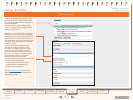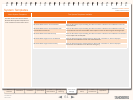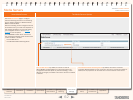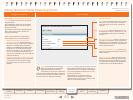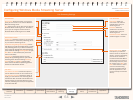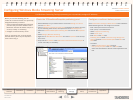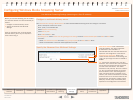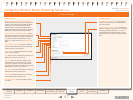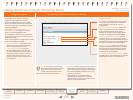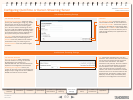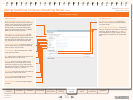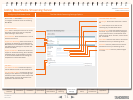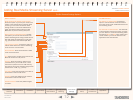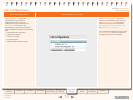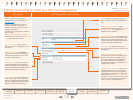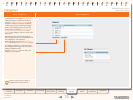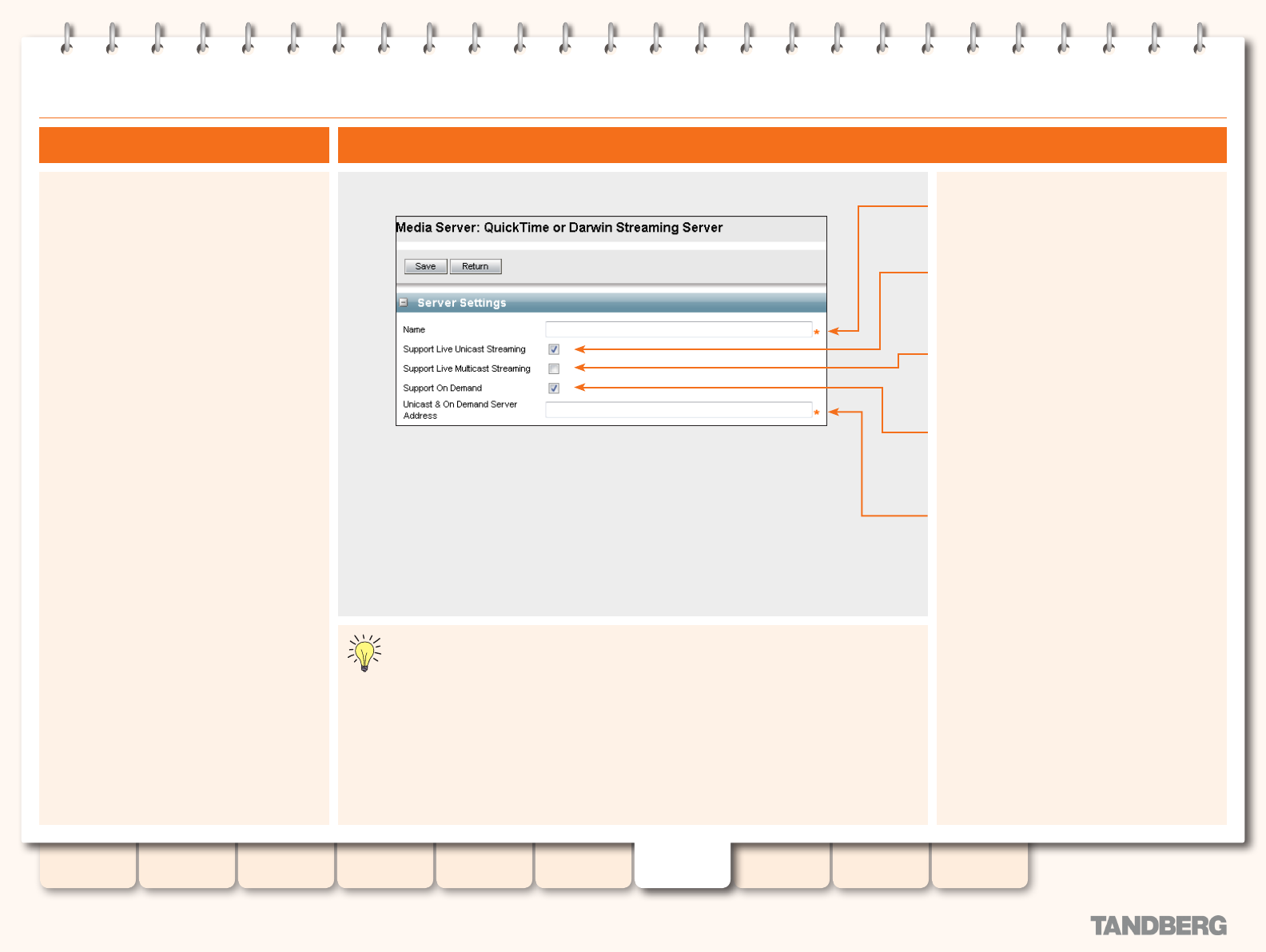
68
D13898.06
MAY 2008
TANDBERG CONTENT SERVER
ADMINISTRATOR GUIDE
Table of
Contents
Introduction Installation Quick Setup
TCS
Administration
Backing up and
Restoring
Administrator
Settings
Conference
Setup
View
Conferences
Appendices
SERVER SETTINGS
Name. Enter a descriptive name for the server.
The server name will be used in a template
when selecting a media server. This is a
required eld.
Support Live Unicast Streaming. Select if the
server is to support live unicast streaming.
Once selected the Media Server will be
available to choose in the Live Media Server
Settings for templates that stream MPEG4.
Support Live Multicast Streaming. Select if
the Media Server is to support live multicast
streaming. Once selected the Media Server will
be available to choose in the Live Media Server
Settings for templates that stream MPEG4.
Support On Demand. Select if the server is to
support on demand streaming. Once selected
the Media Server will be available to choose
in the On Demand Media Server Settings for
templates that stream MPEG4.
Unicast and On Demand Server Address. Enter
the DNS name or the IP address of the external
streaming server. This is a required eld.
The QuickTime Or Darwin Streaming Server Settings
Adding QuickTime or Darwin Streaming Server
Conguration Options
The Content Server default installation
supports only HTTP-based on demand
streaming of MPEG4 from its local IIS Web
Server. An external media server must be set
up for live unicast and true (RTSP) on-demand
streaming of MPEG4.
Click on the Add QuickTime or Darwin
Streaming Server to congure an external
server for streaming MPEG4 media.
The conguration options for your QuickTime
or Darwin streaming server include live and on
demand streaming.
There are two options for conguring the media
server for live MPEG4 streaming:
Live unicast streaming.
•
This requires an
external QuickTime or Darwin streaming
server to relay streams to clients.
Live multicast streaming.
•
This option
requires a Media Server to be set up on
the Content Server but does not require an
external QuickTime or Darwin streaming
server to relay streams to clients - the
multicast stream is sent directly from the
Content Server.
Unicast connections are one-to one
connections between each QuickTime
Player client and the server. Each
unicast client that connects to the
server takes up additional bandwidth.
In multicast delivery, the server sends only one
stream which reaches all player clients at the
same time. There is no additional overhead for
the server regardless of whether one or more
clients are connected.
Multicast delivery is generally used for
broadcasting live streams on a corporate
network and will only work if all routers on the
network are multicast enabled.



